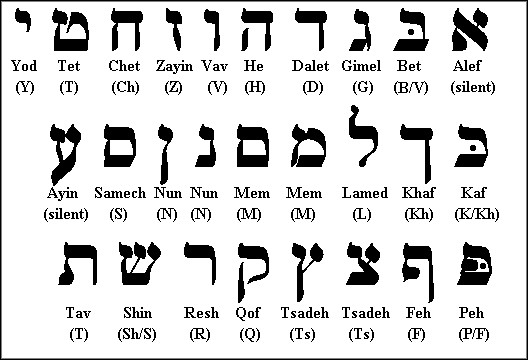
Right here on Churchgists, you are privy to a litany of relevant information on Spiritual meaning of andre, ANDRE in Hebrew, How to use ANDRE in Hebrew and so much more. Take out time to visit our Website for more information on similar topics.
Spiritual meaning of andre

andre
ANDRE in Hebrew
Do you know ANDRE in Hebrew? How to use ANDRE in Hebrew and how to say ANDRE in Hebrew? How to write ANDRE in Hebrew? Now let’s learn how to say ANDRE in Hebrew language.
ANDRE translate to Hebrew meanings: אנדרה.
In other words, אנדרה in Hebrew is ANDRE in English.
Click to pronunce
| English | Hebrew |
 |  |
| ANDRE | אנדרה |
How to use ANDRE in Hebrew?
Meaning of ANDRE in Hebrew language is: אנדרה.
Why we should learn Hebrew language?
There are many, many reasons why learning a new language is a good idea. It allows you to communicate with new people. It helps you to see things from a different perspective, or get a deeper understanding of another culture. It helps you to become a better listener. It even has health benefits, as studies have shown that people who speak two or more languages have more active minds later in life!
7 reasons to learn a Hebrew language
- Makes you smarter.
- Boosts academic achievement.
- Provides professional and career advantages.
- Provides broader access to education and information.
- Gives you more social and global skills.
- Increases national security.
- Life is more interesting.
How to say ANDRE in Hebrew?
אנדרה. This is your most common way to say ANDRE in אנדרה language. Click audio icon to pronounce ANDRE in Hebrew::
| English | Hebrew |
 |  |
| ANDRE | אנדרה |
How to write in Hebrew?
The standard way to write “ANDRE” in Hebrew is: אנדרה
Alphabet in Hebrew

About Hebrew language
Hebrew (עִבְרִית, About this soundIvrit (help·info), IPA: [ivˈʁit] or [ʕivˈɾit]) is a Northwest Semitic language of the Afroasiatic language family. Historically, it is regarded as the language of the Israelites, Judeans and their ancestors. It is the only Canaanite language still spoken and the only truly successful example of a revived dead language, and one of only two Northwest Semitic languages still spoken, the other being Aramaic.
The language was not referred to by the name Hebrew in the Hebrew Bible, but as Yehudit (“the language of Judah”) or səpaṯ Kəna’an (“the language of Canaan”).[note 1] Mishnah Gitin 9:8 refers to the language as Ivrit meaning Hebrew; however, Mishnah Megillah refers to the Hebrew language as Ashurit, meaning Assyrian, which is derived from the name of the alphabet used, in contrast to Ivrit meaning the paleo-Hebrew alphabet. The earliest examples of written Paleo-Hebrew date to the 10th century BCE..
Writing system in Hebrew
Hebrew alphabet, Hebrew Braille, Paleo-Hebrew alphabet (Archaic Biblical Hebrew), Imperial Aramaic script (Late Biblical Hebrew)
Hebrew Speaking Countries and Territories
Hebrew Speaking Countries and Territories: Israel.

Hebrew native speakers
Hebrew native speakers: 9 million speakers of Modern Hebrew of which 5 million are native speakers (2017).
Hebrew language code
Hebrew language code is: he.
 FORM OF:
FORM OF:  This name derives from the Ancient Greek “Andréas (Ἀνδρέας)”, which in turn derives from “anḗr (ἀνήρ) andrós (ἀνδρός)”, meaning “man, adult male, husband”. In turn the name means “manly and strong, courageous and warrior”. He was the first Apostle in the New Testament. It is traditionally popular because, according to the Christian Bible, Saint Andrew was one of the earliest disciples of Jesus and one of the twelve Apostles. Andrew the Apostle (6 b.C.–60 a.C.), called in the Orthodox tradition Prōtoklētos, or the First-called, is a Christian Apostle and the brother of Saint Peter. The name “Andrew”, like other Greek names, appears to have been common among the Jews, Christians, and other Hellenized people of the region. No Hebrew or Aramaic name is recorded for him. According to Orthodox tradition, the apostolic successor to Saint Andrew is Patriarch Bartholomew I.
This name derives from the Ancient Greek “Andréas (Ἀνδρέας)”, which in turn derives from “anḗr (ἀνήρ) andrós (ἀνδρός)”, meaning “man, adult male, husband”. In turn the name means “manly and strong, courageous and warrior”. He was the first Apostle in the New Testament. It is traditionally popular because, according to the Christian Bible, Saint Andrew was one of the earliest disciples of Jesus and one of the twelve Apostles. Andrew the Apostle (6 b.C.–60 a.C.), called in the Orthodox tradition Prōtoklētos, or the First-called, is a Christian Apostle and the brother of Saint Peter. The name “Andrew”, like other Greek names, appears to have been common among the Jews, Christians, and other Hellenized people of the region. No Hebrew or Aramaic name is recorded for him. According to Orthodox tradition, the apostolic successor to Saint Andrew is Patriarch Bartholomew I.